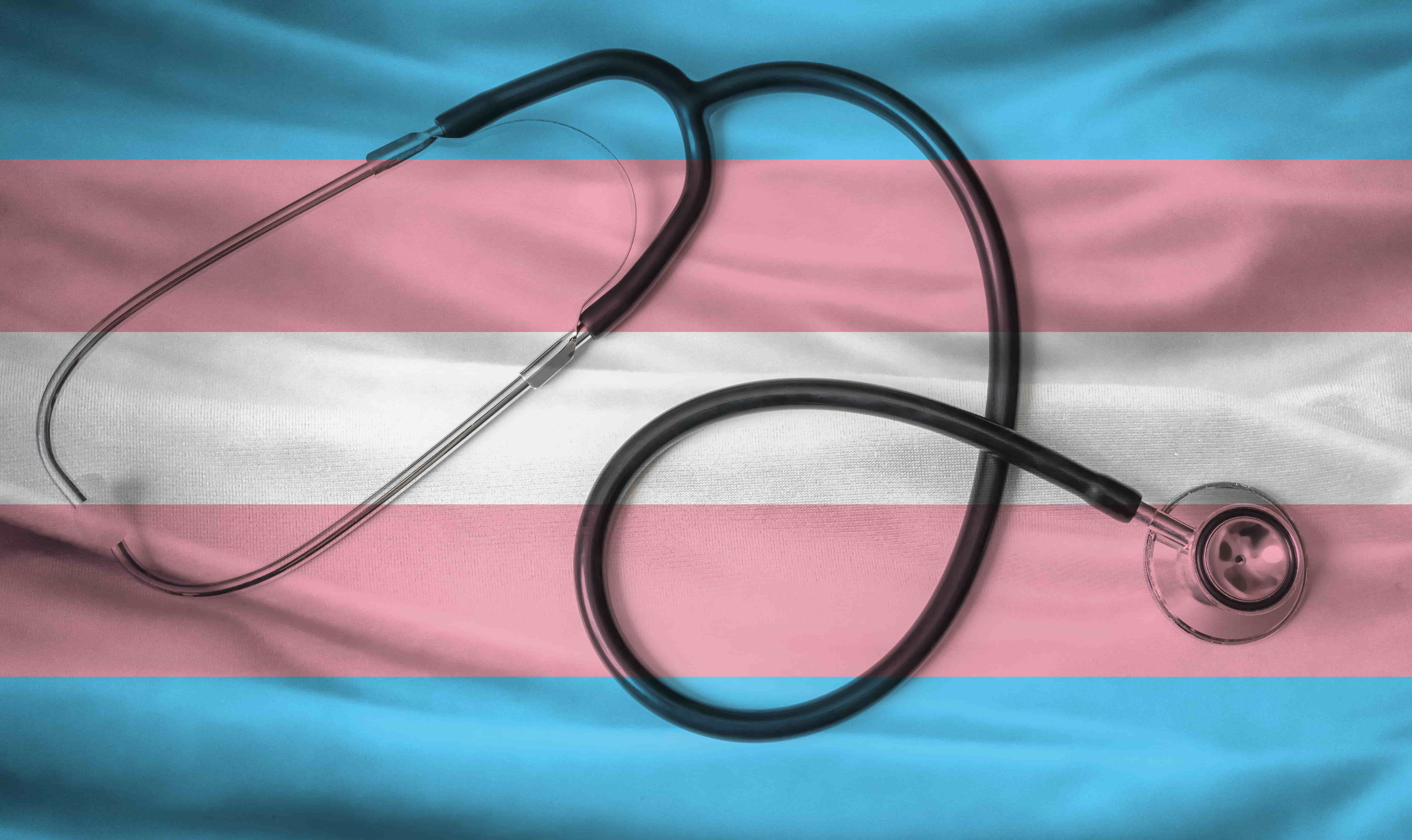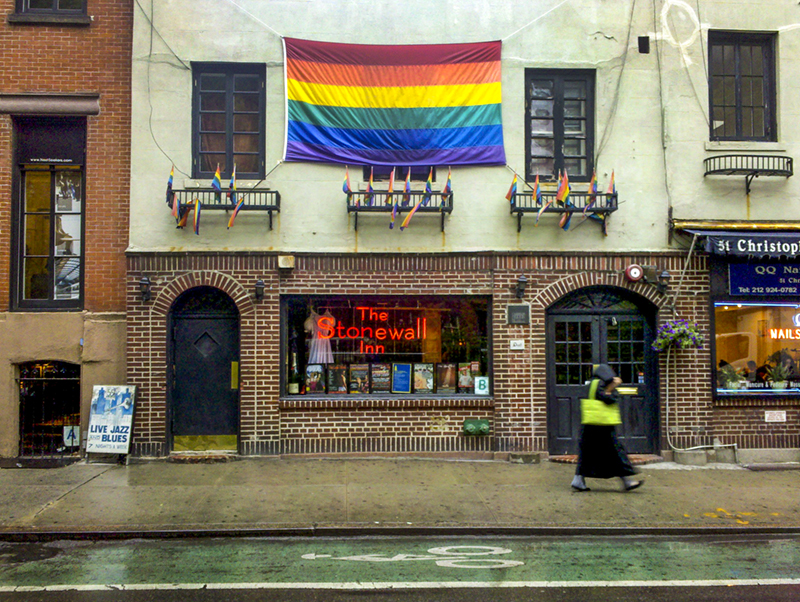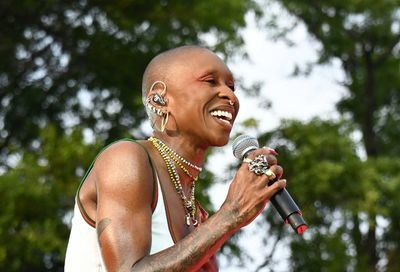Trans Teen Wins Gold Under New California Scoring Rule
AB Hernandez earned two golds and a silver as CIF changes scoring rules to preserve podium spots for cisgender athletes.

A transgender athlete in California won two golds and a silver medal at the CIF State Track & Field Championships last weekend, but officially “tied” with other athletes due to a specialized scoring system instituted just ahead of the state meet.
AB Hernandez, a transgender girl who is a junior at Jurupa Valley High School in Riverside, California, placed first in the girls’ high jump and triple jump competitions, and second in the girls’ long jump competition.
Hernandez’s participation sparked controversy and staunch opposition from some parents and bystanders, especially after President Donald Trump threatened to permanently withhold federal money from California if transgender athletes — specifically Hernandez, although he did not refer to her by name — were allowed to compete in female events.
Despite the president calling on local authorities to prevent Hernandez from competing, no action was taken to remove her or block her from the meet.
Following Trump’s threat, officials with the California Interscholastic Federation, the state’s governing body for high school sports, approved a new “pilot entry process” that prevents cisgender female athletes from being “displaced” in the standings by transgender athletes and allows them to qualify for and compete in various meets, and win medals that they otherwise might not.
For instance, athletes must often make certain marks or run certain times to qualify for the state meet. But under the pilot entry process, any “biological female” athlete who places behind a transgender athlete and otherwise would have qualified for a next-level competition is allowed to progress forward.
Any cisgender female athlete in sprint or field events who otherwise would have qualified for the finals is advanced to the finals, along with any transgender athletes.
ACIF told Metro Weekly in a statement predating the state championships that in the high jump, triple jump, and long jump competitions — events in which Hernandez was competing — “a biological female student-athlete who would have earned a specific placement on the podium will also be awarded the medal for that place, and the results will be reflected in the recording of the event.”
In California, the top nine finishers in any event are awarded medals and their team is awarded points on a declining scale, beginning with 10 points for a first-place finish and half a point for a ninth-place finish.
In the finals, Hernandez placed first in the triple jump competition, with a jump of 42 feet, two-and-three-quarter inches. The next competitor jumped 40 feet, 5 inches. But under the new rules, because cisgender athletes are not displaced, both she and that competitor received a first-place medal and were awarded 10 points.
In the high jump competition, Hernandez and two other athletes all cleared the bar at 5 feet, 7 inches.
Typically, athletes’ placement is determined on how many attempts it took them to surpass a certain mark. While Hernandez cleared the mark on her first attempt, and the other two cleared it on their second attempt, all three were awarded first place. Because both cisgender girls made the same mark and had the same number of attempts, the points for first and second place (10 and eight, respectively) were averaged between the two athletes, and both girls were awarded nine points in team scoring.
Because she officially “tied” with them, Hernandez’s school was also awarded nine points, and all three athletes shared the first-place podium.
In the long jump competition, Hernandez posted the second-best mark of the day, with 20 feet, eight-and-three-quarter inches. But under the new scoring system, a cisgender competitor who jumped 19 feet, four-and-one-quarter inch was also awarded second. Both shared the podium when medals were awarded.
In all three events, the top nine biological females earned medals for a top-nine podium finish and were awarded the points they would have earned had Hernandez not competed. Those athletes who placed 11th or below kept their original placement.
CIF officials previously argued that the new scoring policy would extend athletic opportunities to cisgender female athletes by ensuring they are not denied the chance to win a medal, according to Sacramento NBC affiliate KCRA.
The new “pilot entry” process and scoring changes were praised by California Democratic Gov. Gavin Newsom.
“CIF’s proposed pilot is a reasonable, respectful way to navigate a complex issue without compromising competitive fairness — a model worth pursuing,” Izzy Gardon, a spokesperson for Newsom, said in a statement. “The Governor is encouraged by this thoughtful approach.”
Meanwhile, the U.S. Department of Justice has opened an investigation into whether a 2013 California law (A.B. 1266) that allows transgender student-athletes to compete based on their gender identity violates Title IX, the federal law prohibiting sex-based discrimination in educational settings. The Trump administration has previously stated that it interprets Title IX as protecting cisgender females from being forced to compete against transgender athletes.
“A.B. 1266 unlawfully permits males to participate on female sports teams and to use female spaces, resulting in unfair and unsafe environments for women and girls,” reads a letter from Harmeet Dhillon, the assistant attorney general for civil rights. “[The law] is harming hundreds — if not thousands — of female students.”
“Donald Trump’s threat to withhold federal funding from California over the participation of a transgender high school student-athlete is a blatant abuse of executive power,” Equality California Executive Director Tony Hoang said in a statement. “The President is attempting to punish an entire state for upholding its values of inclusion — while targeting and marginalizing one student to advance a discriminatory political agenda. No child should ever be singled out for who they are, and no state should have critical resources held hostage in the process.”
Support Metro Weekly’s Journalism
These are challenging times for news organizations. And yet it’s crucial we stay active and provide vital resources and information to both our local readers and the world. So won’t you please take a moment and consider supporting Metro Weekly with a membership? For as little as $5 a month, you can help ensure Metro Weekly magazine and MetroWeekly.com remain free, viable resources as we provide the best, most diverse, culturally-resonant LGBTQ coverage in both the D.C. region and around the world. Memberships come with exclusive perks and discounts, your own personal digital delivery of each week’s magazine (and an archive), access to our Member's Lounge when it launches this fall, and exclusive members-only items like Metro Weekly Membership Mugs and Tote Bags! Check out all our membership levels here and please join us today!



























You must be logged in to post a comment.